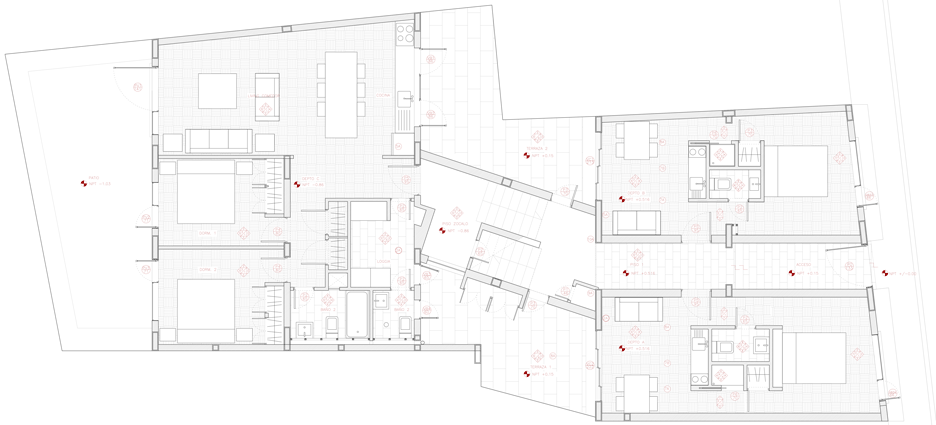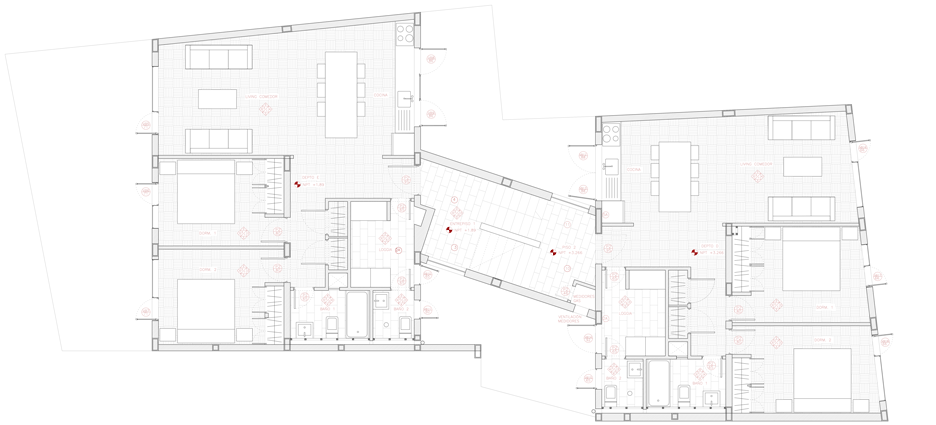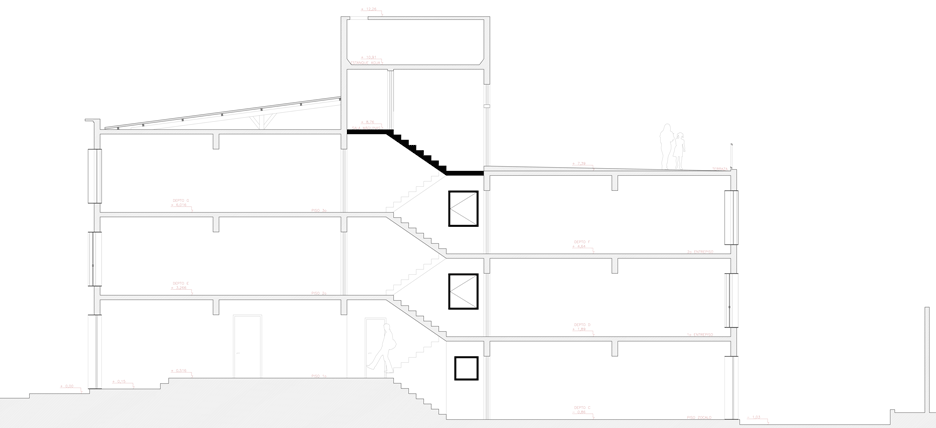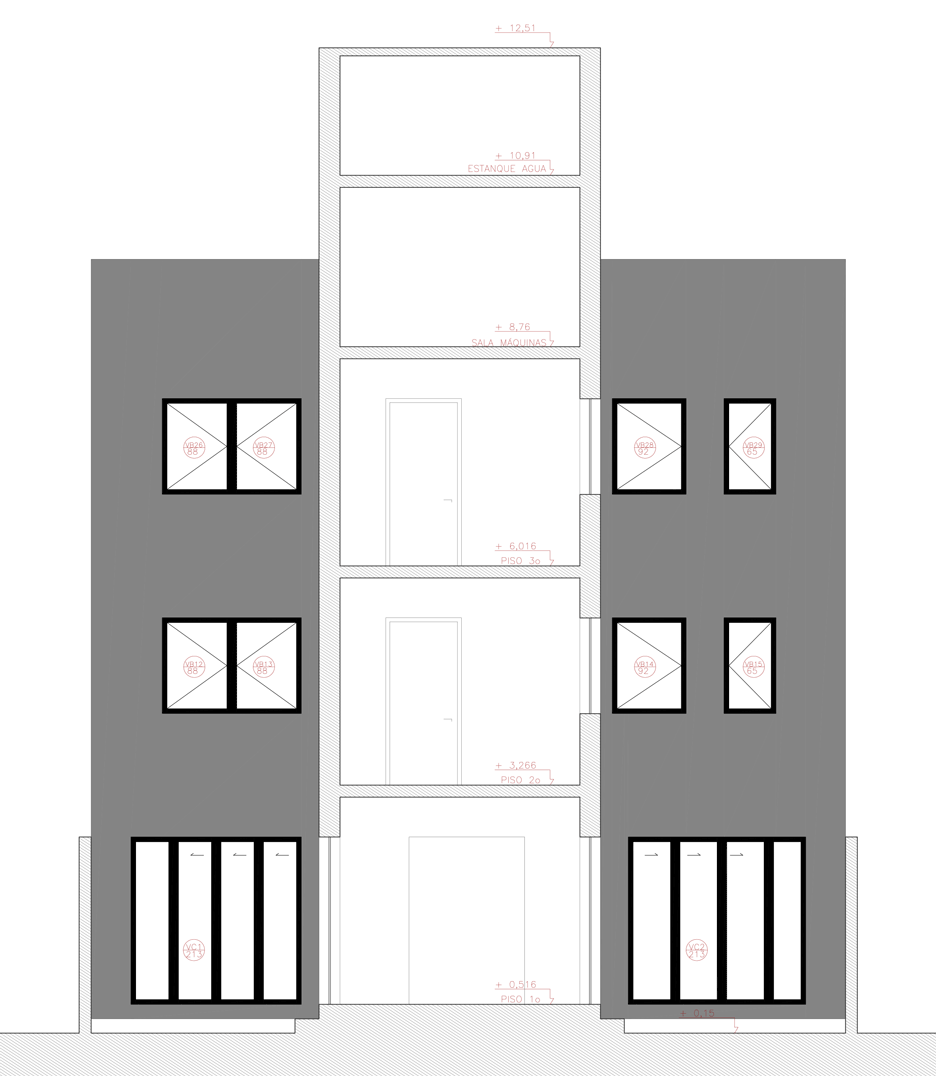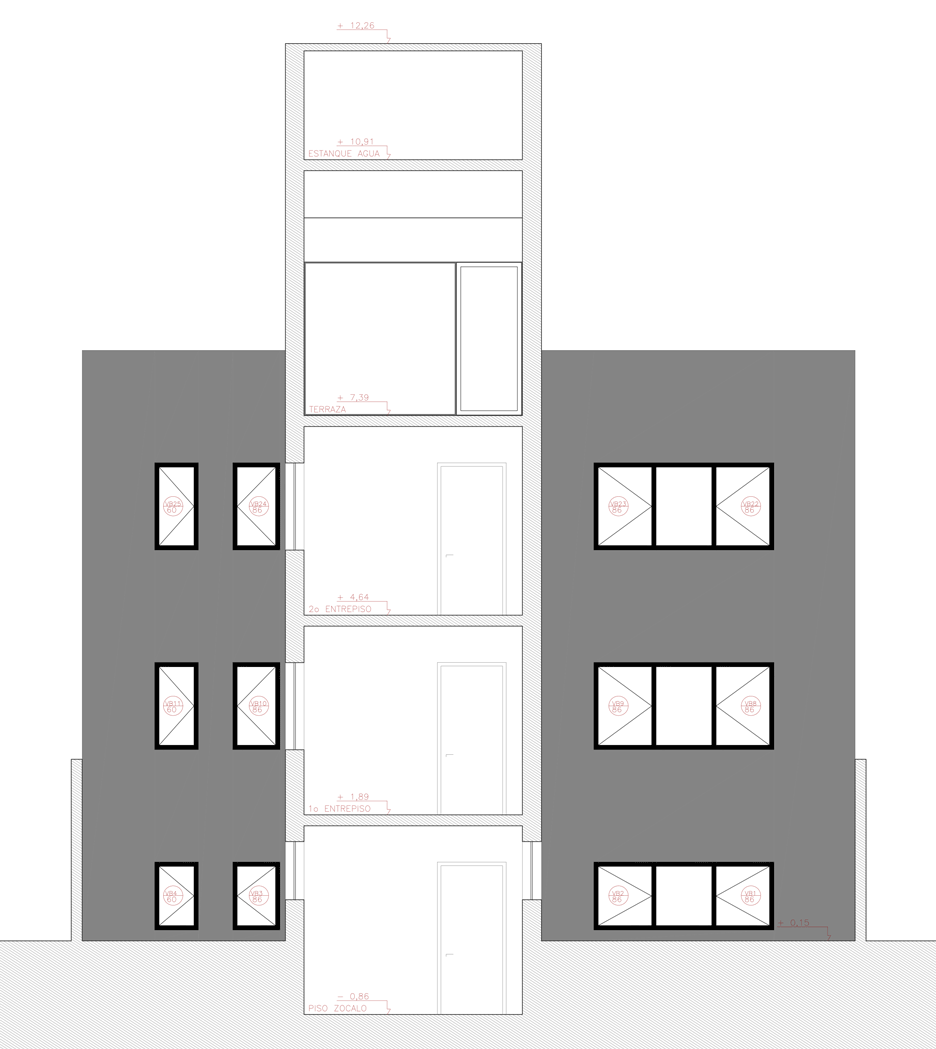MAPA updates Chilean housing block with textured brick facade
Chilean studio MAPA has converted a vacant building in Santiago into an apartment block covered in zigzagging brickwork (+ slideshow).
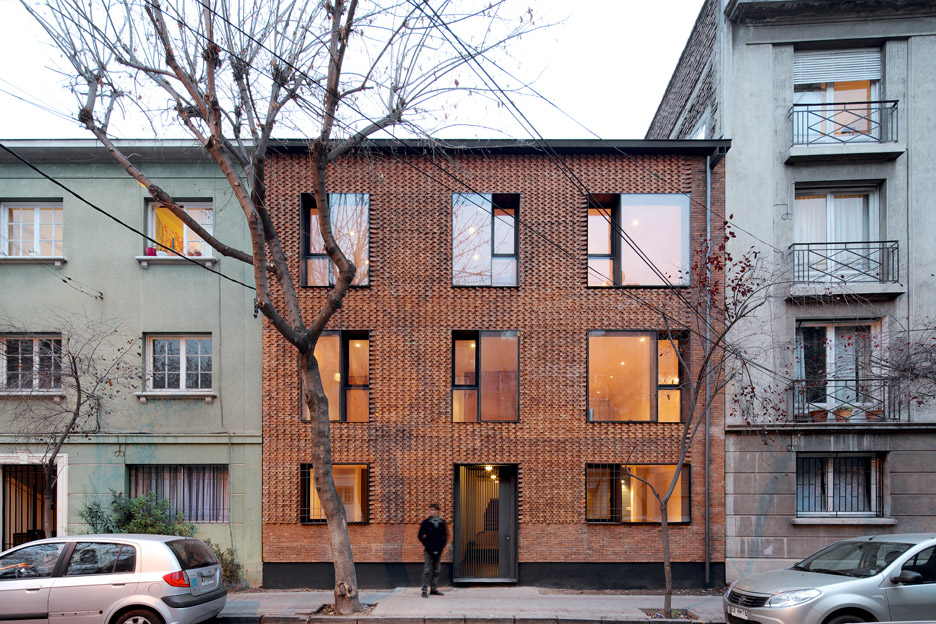
The 1940s building in the Providencia area of the city had been derelict for 30 years before MAPA co-founders Cristián Larraín and Matías Madsen carried out the overhaul, which they call Project E_RC.
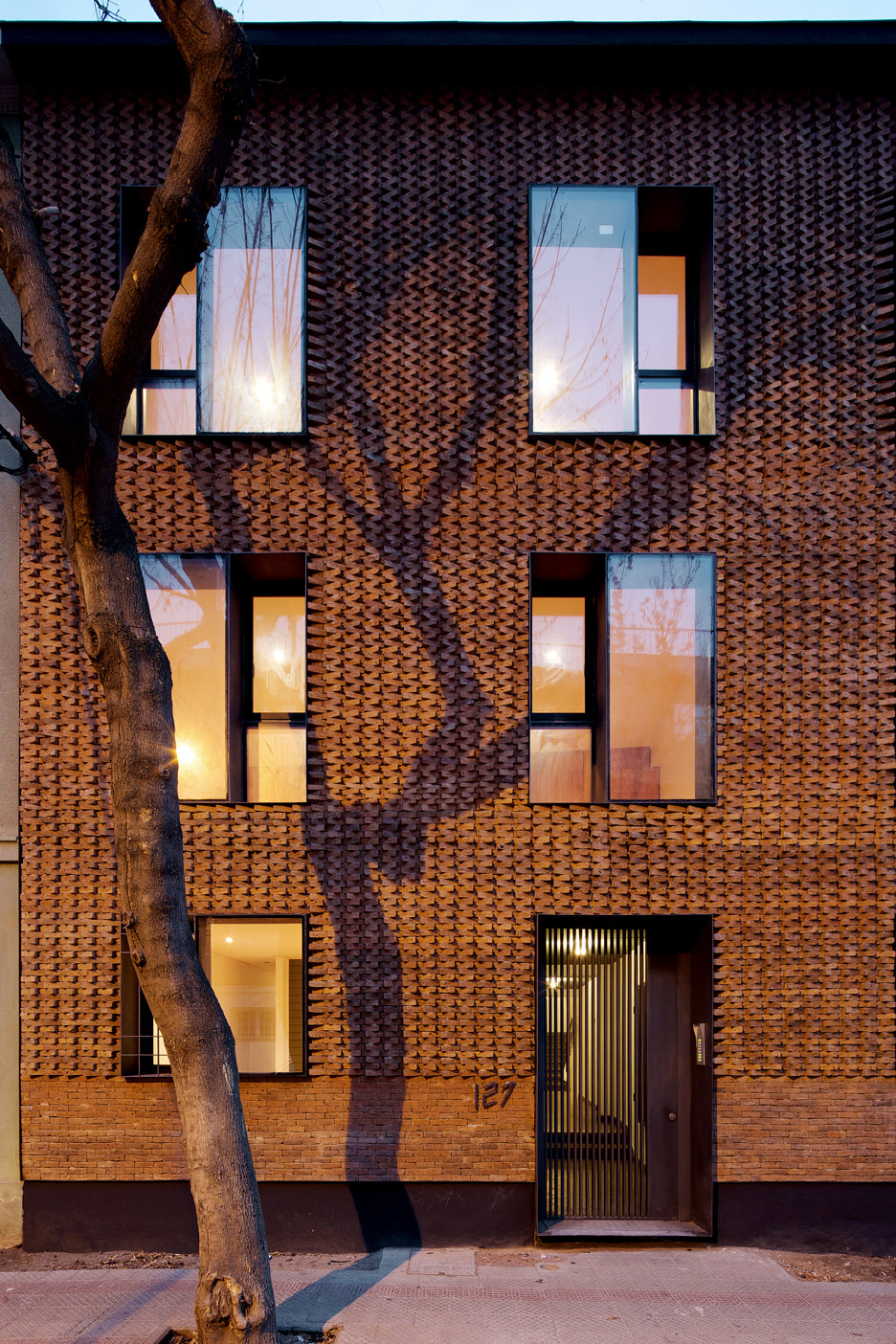
The three-storey building is covered in brick cladding, which is intended to "generate a new grain, referring to the mouldings and stucco details of classical buildings nearby."
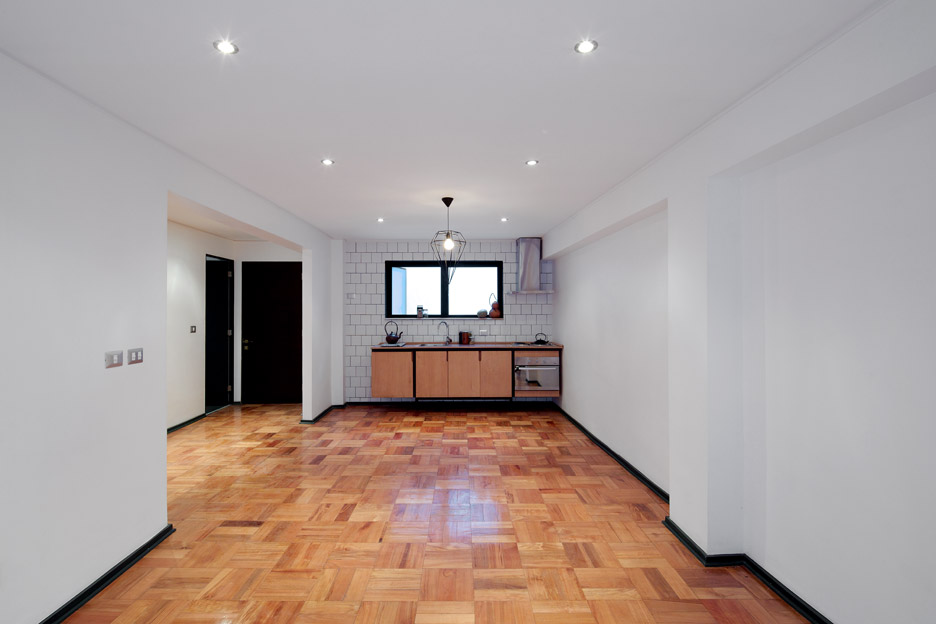
Regular terracotta-coloured bricks were split diagonally to create small triangular prisms – a technique also used by Fraher Architects for a slate-grey extension in north London.
These blocks are arranged in rows with the tips pointing in alternate directions, forming a zigzagging pattern across the facade of the apartment block. The textured brickwork is intended to help blend the new facade with the decorative faces of neighbouring buildings.
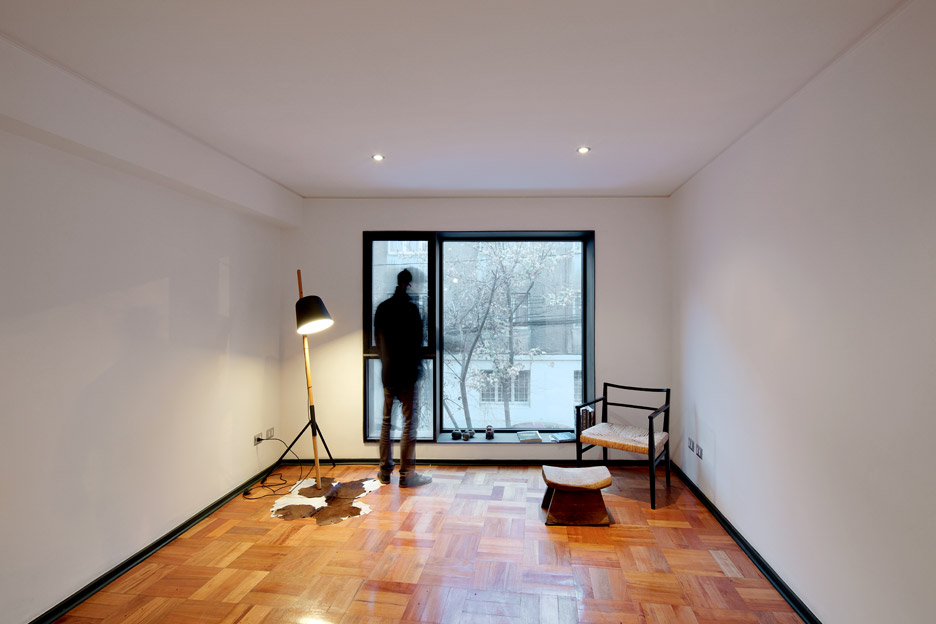
"The context in which the project is located is one of classic buildings with continuous facades, almost all built in the same decade – the 1940s – without any visible intervention in the past 70 years," said Larraín and Madsen. "So the first problem was how a new piece could be inserted in a context like this."
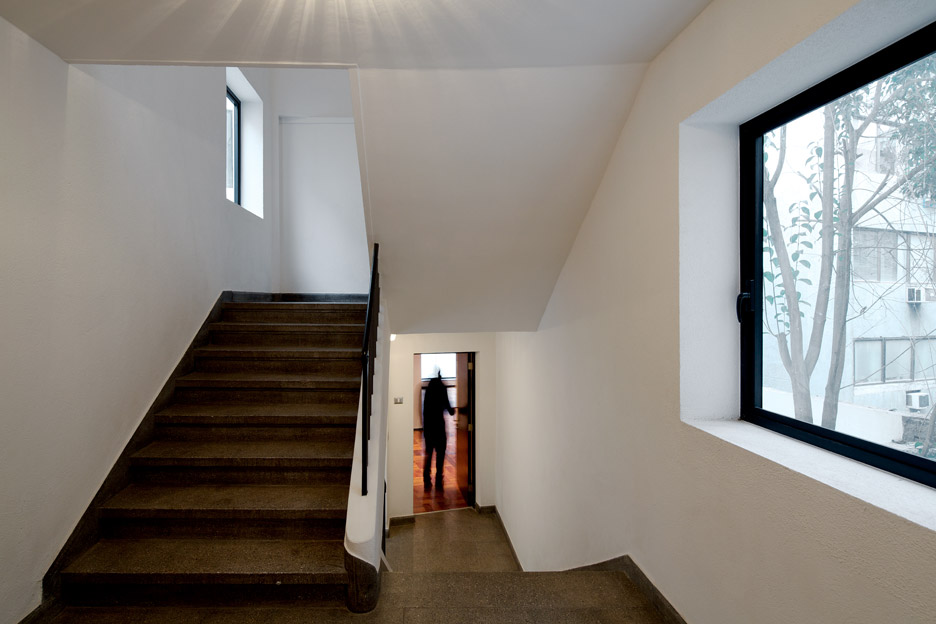
Existing windows were expanded to give each of the seven apartments adequate natural lighting. Deep steel window frames were added to help support the modified facade. The glass sits flush with the outer brick cladding, creating wide sills just above floor level on the interior.
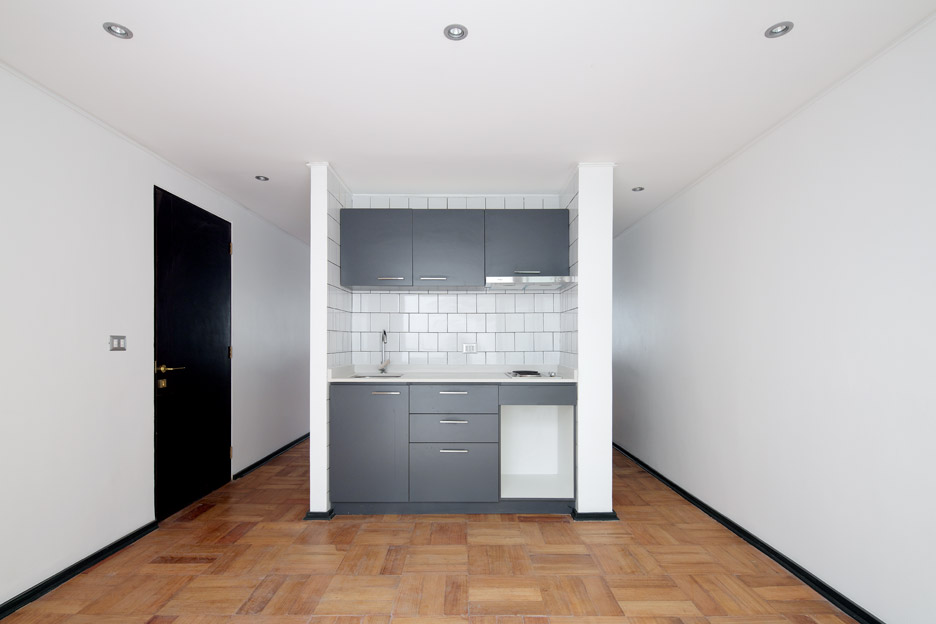
"To create luminous interior spaces was the only customer requirement, a fact that became the trigger for all subsequent intervention decisions," explained the architects. "For this purpose, it was decided to enlarge the openings in the facade, which meant a change in the original morphology."
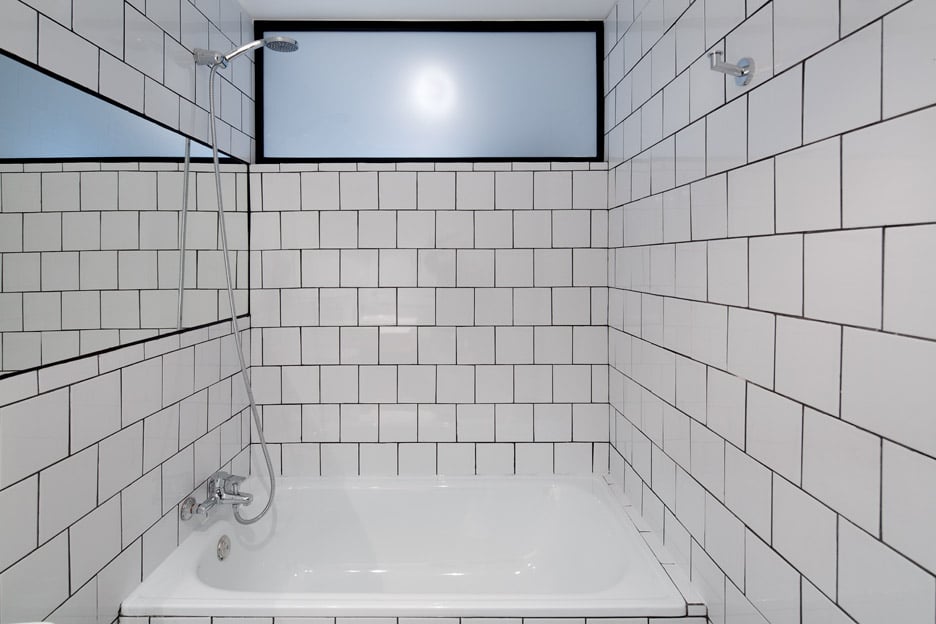
The block contains a mixture of studio and two-bedroom apartments, which are uniformly decorated with wooden parquet flooring, white tiles and grey cabinetry.
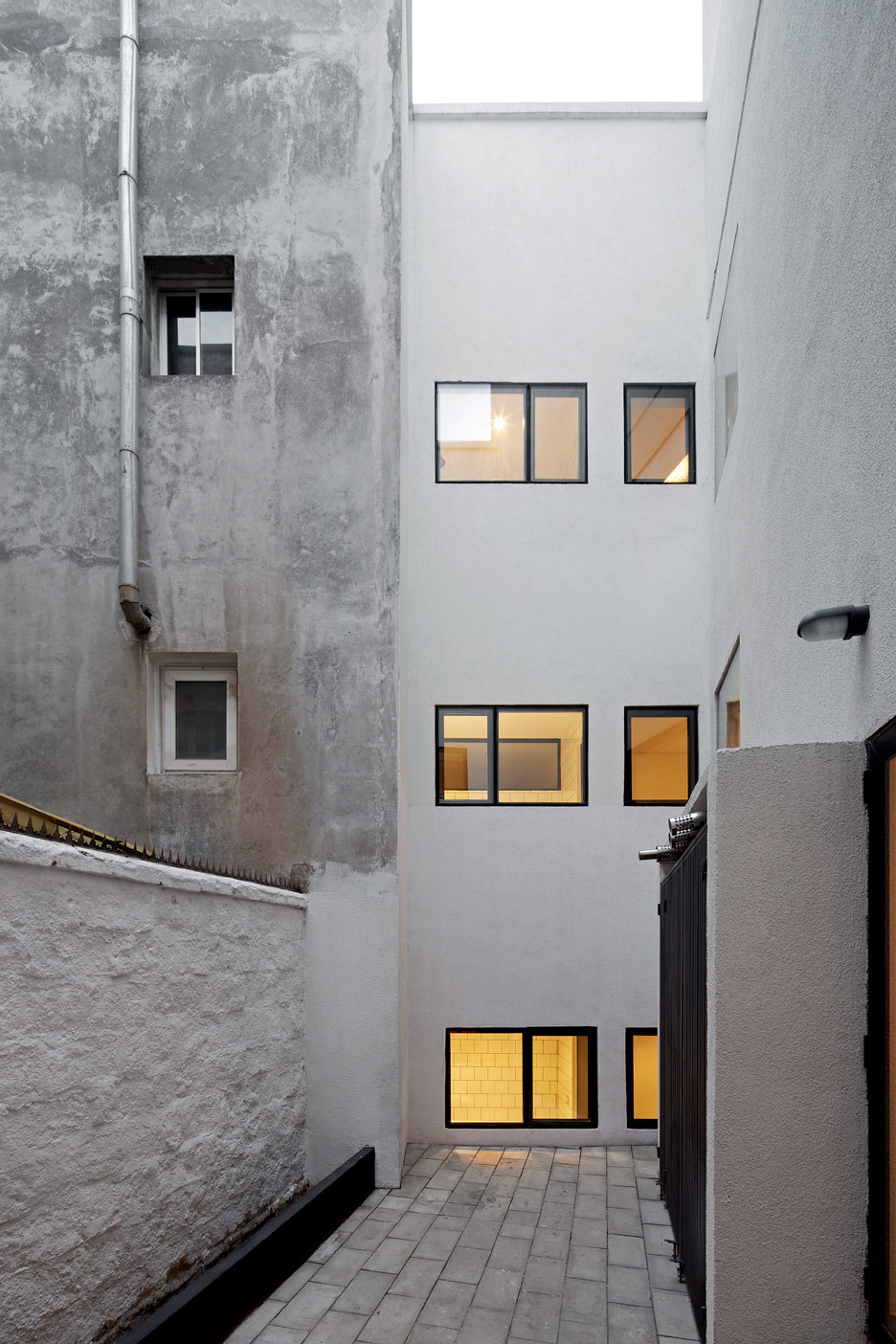
Floor-to-ceiling units divide the 35-square-metre studios into two parts – one for sleeping and one for entertaining. Gaps around the side of the units, which contain kitchens and bathrooms, allow light to pass from the road-facing windows to the back of the apartment.
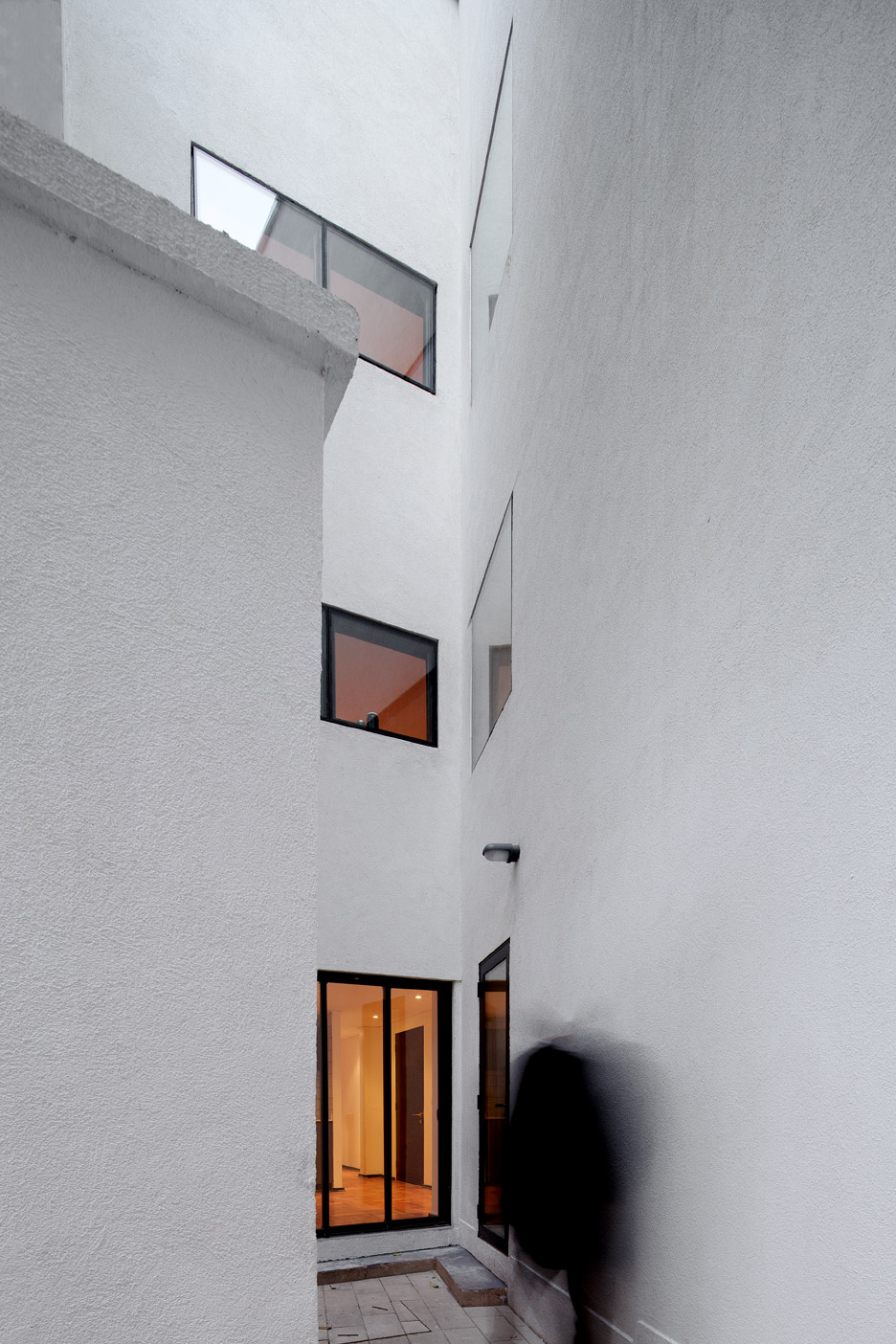
The larger apartments have an area of 80 square metres and feature open-plan living areas that span the depth of the block. Ground floor flats also have access to a patio concealed at the rear of the building.
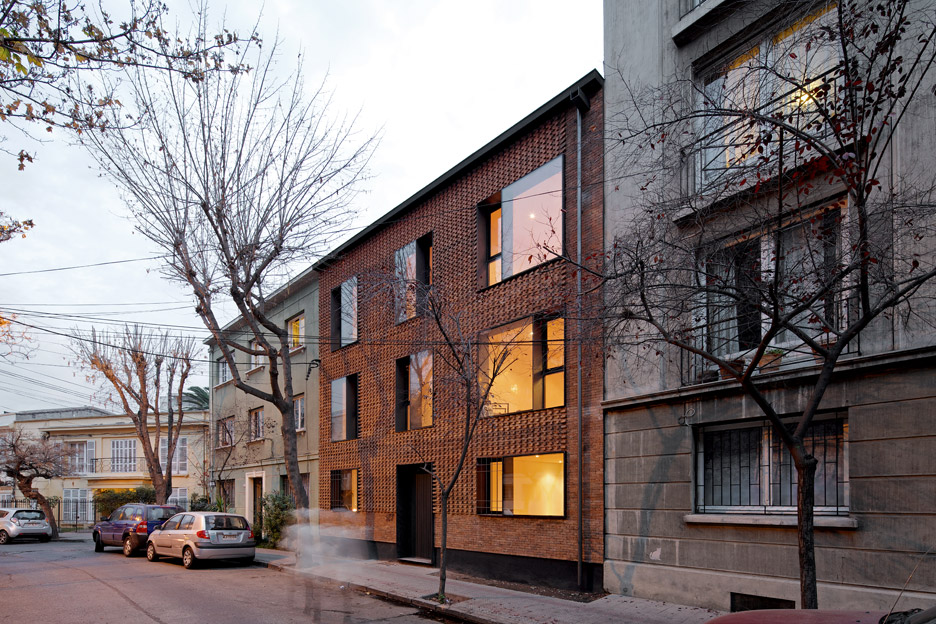
Photography is by Nicolás Saieh.
Project credits:
Architect: MAPA/Cristián Larraín and Matías Madsen
Design: Alex Popp
Contractor: DML
